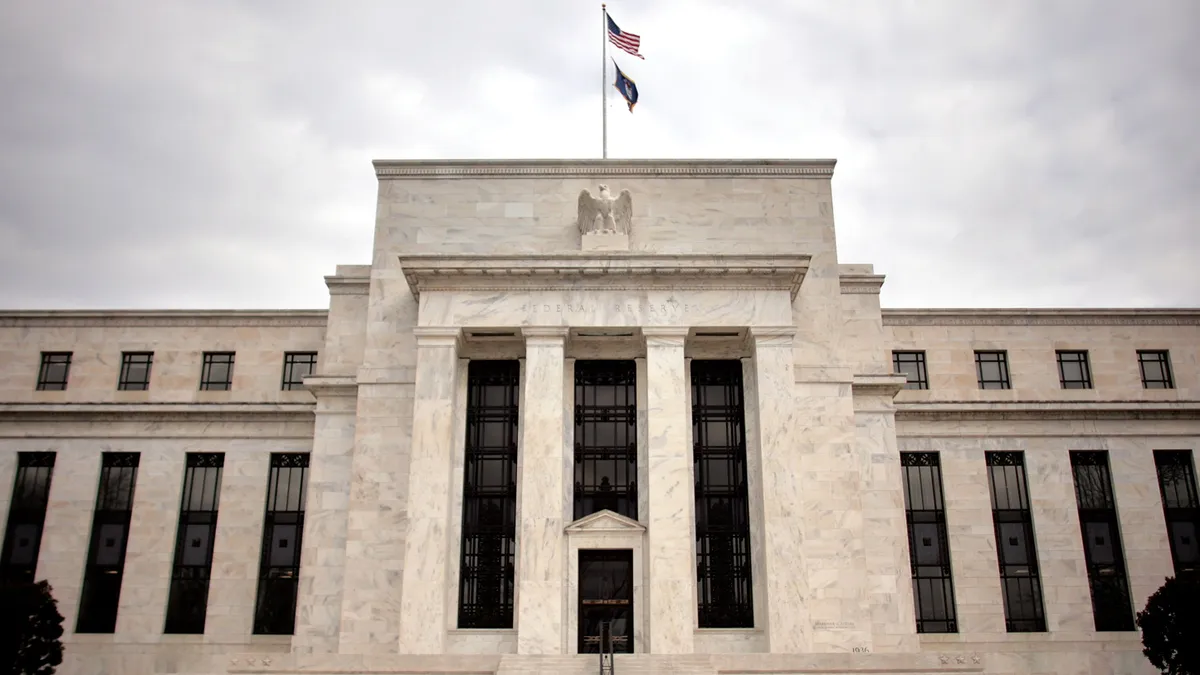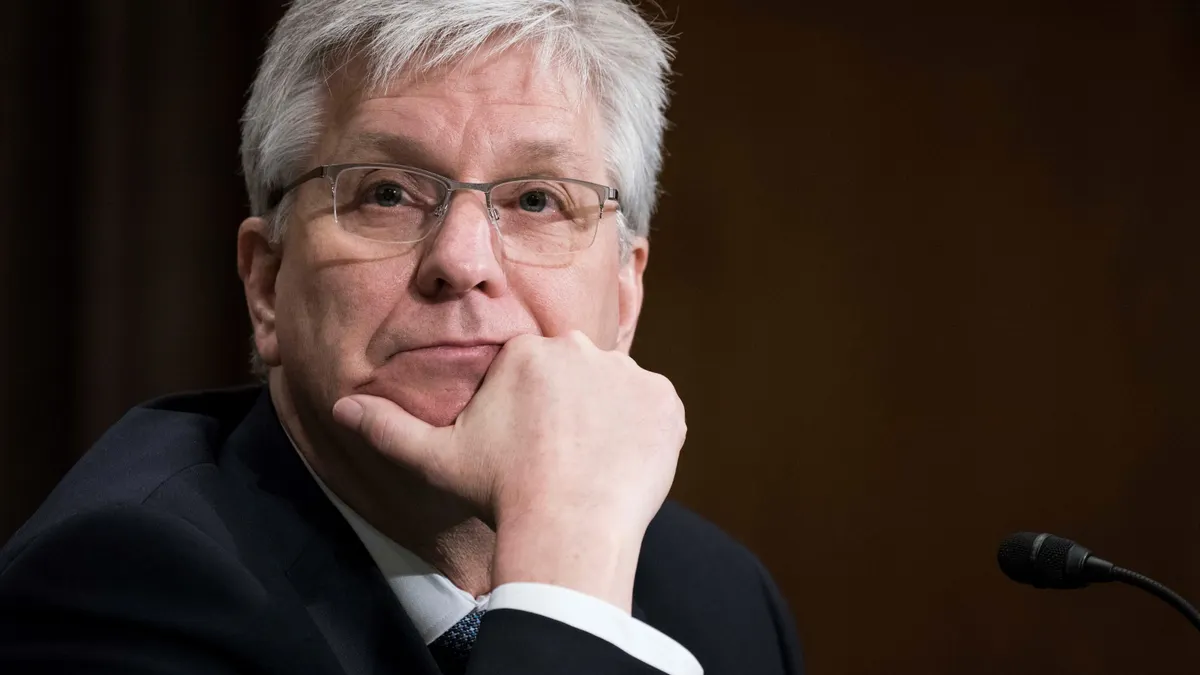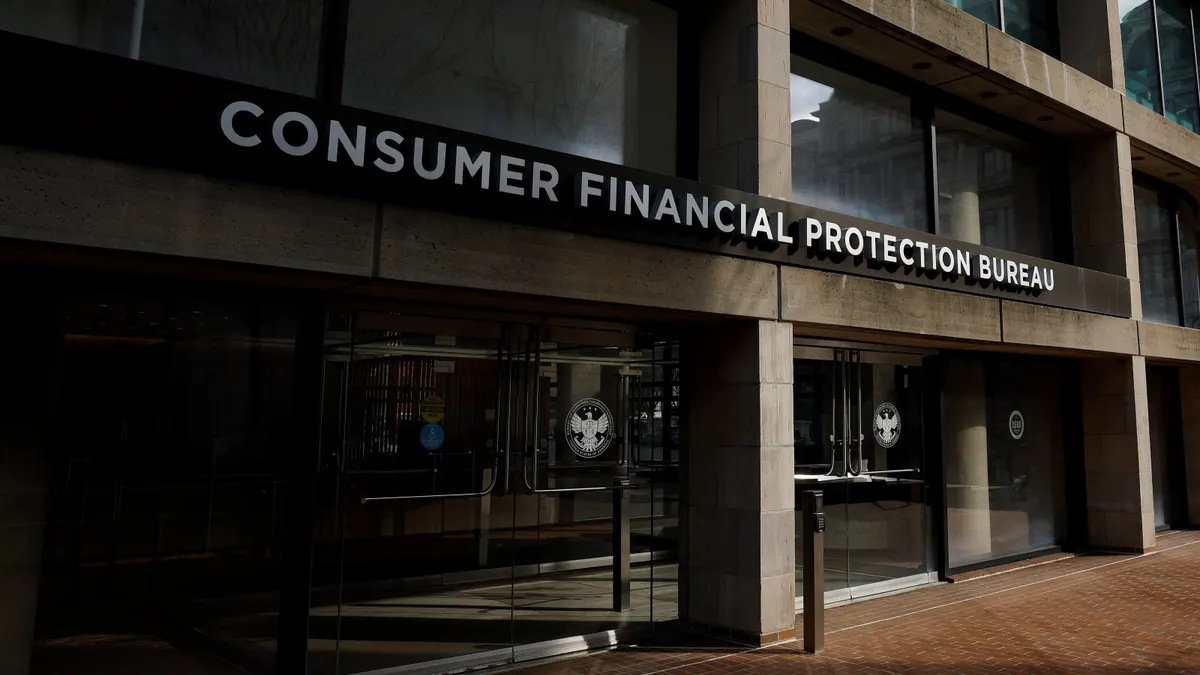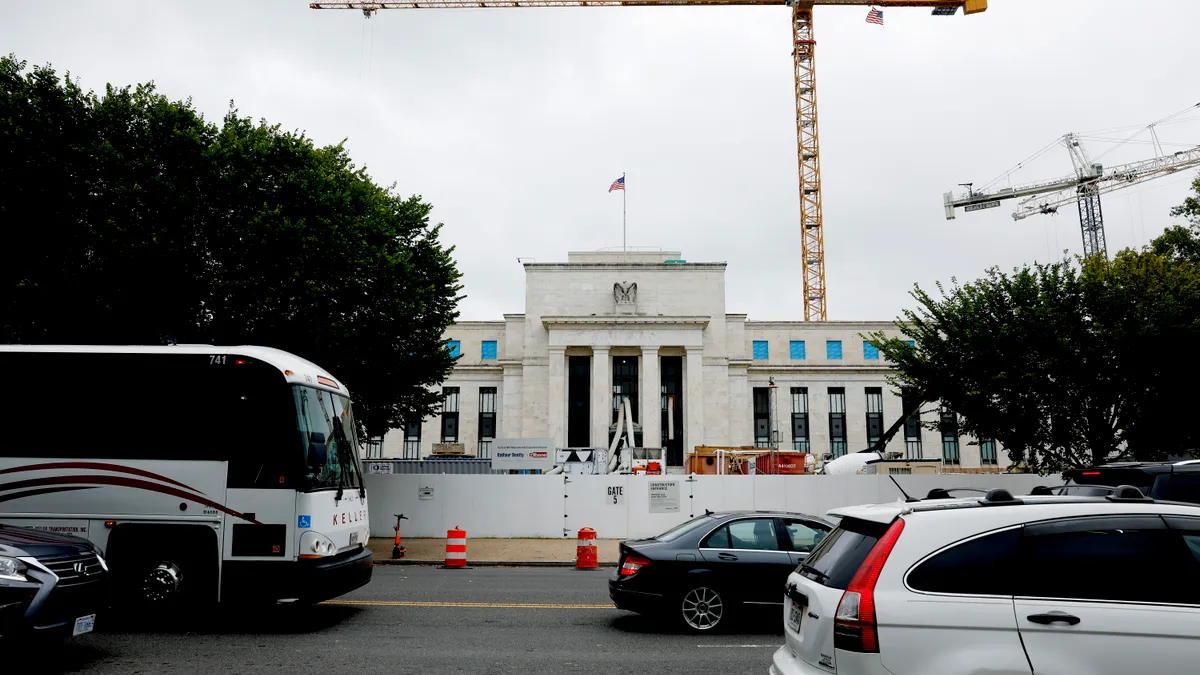Sarah Bloom Raskin withdrew her name Tuesday from consideration to serve as the Federal Reserve’s vice chair for supervision, according to a letter to President Joe Biden published by The New Yorker.
“If I step away from this confirmation process, there can be no excuse left for a continued boycott of the Constitution’s ‘advice and consent’ process,” Raskin wrote.
Republicans’ reservations over Raskin’s nomination have held up the confirmation process for five Fed candidates, including the renomination of Jerome Powell as the central bank’s chair.
But lack of support from a Democrat appears to have been the final blow to Raskin’s chance to serve as the Fed’s top banking regulator.
“[Raskin’s] previous public statements have failed to satisfactorily address my concerns about the critical importance of financing an all-of-the-above energy policy to meet our nation’s critical energy needs,” Sen. Joe Manchin, D-WV, said Monday in a statement. “I am unable to support her nomination to serve as a member of the Federal Reserve Board.”
“All-of-the-above” is Manchin-speak for a policy that includes coal, oil and gas. Manchin’s home state of West Virginia ranks as the nation’s second-leading coal-producing state, according to the U.S. Energy Information Administration. And the senator’s donors include fossil-fuel executives such as ConocoPhillips CEO Ryan Lance, Occidental Petroleum CEO Vicki Hollub and Valero Energy President R. Lane Riggs, according to CNBC.
To this point, Democrats' strategy had been to push through Raskin's nomination on a 50-50 party-line vote, with Democratic Vice President Kamala Harris casting a tiebreaker to seal Raskin's approval.
As news of Manchin's thumbs-down spread, moderate Republicans also came out against Raskin. "I think she's a flawed nominee," Sen. Lisa Murkowski, R-AK, told Politico on Monday.
Was it climate or ethics?
The exact root of Republicans' gripe with Raskin is up for debate. Her most vocal critic, Sen. Pat Toomey, R-PA, flagged her stance on lending to high-carbon companies on the day her nomination was announced. But his argument grew louder as the confirmation process progressed.
“[Raskin] has recently and repeatedly and expressly advocated that financial regulators generally, and the Fed in particular, allocate capital away from the fossil-fuel sector, for instance, because she thinks climate change is just such a serious thing that the Fed simply has to step up and do this,” Toomey told CNBC ahead of Raskin's nomination hearing in front of the Senate Banking Committee. “That’s not a decision to be made by unelected Fed governors who never face the voters.”
Raskin, in a May 2020 New York Times opinion piece, criticized the Treasury and Fed for allowing oil, gas and coal companies to be eligible for government-backed emergency-lending relief launched in the early COVID era.
“The decisions the Fed makes on our behalf should build toward a stronger economy with more jobs in innovative industries — not prop up and enrich dying ones,” she wrote.
But at her nomination hearing, Raskin sought to assuage lawmakers who may have feared she'd use the Fed to espouse a personal opinion.
“The role [of vice chair for supervision] does not involve directing banks to make loans only to specific sectors, or to avoid making loans to particular sectors,” Raskin said last month. "It is inappropriate for the Fed to make credit decisions and allocations based on choosing winners and losers. Banks choose their borrowers, not the Fed.”
A second issue surfaced at the hearing, however — namely, that Sen. Cynthia Lummis, R-WY, implied that Raskin used her standing as a former Fed governor to help the fintech Reserve Trust — where she served on the board of directors — gain a master account with the central bank after its first application was denied.
Raskin repeatedly refused at the hearing to say whether she called the Kansas City Fed on Reserve Trust’s behalf. She later submitted a written statement to Toomey indicating she did "not recall any communications I made to help Reserve Trust obtain a master account."
Toomey asserted in a letter after the hearing that Kansas City Fed President Esther George herself told him Raskin made the 2017 call directly to her.
The Senate Banking Committee's 12 Republicans skipped a Feb. 15 vote to send all five Fed nominations to the full Senate, denying Democrats a quorum and stalling the process.
The lawmakers clarified this month in a letter to Biden that it was the question of ethical conduct, not climate, that spurred their Raskin boycott.
"Our actions to deny a quorum were not the result of Ms. Raskin’s radical public comments and beliefs about using federal financial supervisory powers to advance climate change policy," the panel's Republicans wrote.
Raskin, in her letter to Biden on Tuesday, indicated that she didn't buy it.
"Rather than a productive and informed discussion about climate and financial risk, the country was treated to diversionary attacks on my ethics and character," Raskin wrote.
Senate Banking Committee Chair Sherrod Brown, D-OH, seconded that narrative in a statement Tuesday, calling the boycott a "disingenuous smear campaign."
"Too many of my colleagues ignored the broad, bipartisan support from community bankers, top economists, cybersecurity experts, state banking regulators, consumer advocates, and so many others," Brown wrote. "Instead, they fell for talking points written by the oil and gas industry."
More than 40 energy trade groups wrote a draft letter in January opposing Raskin’s nomination. And, it should be noted, on the list of top coal-producing states, Lummis' Wyoming and Toomey's Pennsylvania rank first and third.
Toomey, in his own statement Tuesday, returned to the message on climate rather than ethics. “The Senate’s bipartisan rejection of Sarah Bloom Raskin’s nomination sends a powerful message to the Fed, and to all financial regulators, that it is not their job to allocate capital or stray from their mission to pursue extraneous or politically charged campaigns."
Biden, too, in a statement Tuesday, blamed Raskin's withdrawal on "baseless attacks from industry and conservative interest groups."
As an aside, Raskin, in her nomination hearing, warned, “Bank supervisors must make sure that the safety of banks and the resilience of our financial system are never compromised in favor of short-term political agendas or special interest groups."
Now what?
Raskin is not the first Biden banking regulator nominee to withdraw her candidacy. Saule Omarova, a Cornell University law professor whom Biden nominated to lead the Office of the Comptroller of the Currency (OCC), bowed out in December amid criticism from Republicans and some moderate Democrats who questioned her past writings and public comments on bank oversight, saying they reveal "radical" views.
Raskin and Omarova illustrate the difficulty Biden faces in finding candidates that simultaneously appease progressives and centrists.
Brown told Bloomberg on Tuesday the Senate banking panel will move forward this week on the four other Fed nominees: Powell, Lael Brainard, Philip Jefferson and Lisa Cook.
Toomey, for his part, said Republicans have been “ready for weeks” to vote on them.
The White House could choose to leave the vice chair for supervision role open, as former President Barack Obama did, and have sitting Fed governors take the lead on regulation.
That approach could be problematic, however, because the only member of the Fed's supervision and regulatory committee is Republican Fed Gov. Michelle Bowman, according to the central bank’s website. It is unclear whether Bowman can introduce new initiatives or if the committee must wait until a new vice chair is confirmed, according to American Banker.
Ian Katz, an analyst at Capital Alpha Partners, said in a note to clients "it’s becoming clear that the supervision post will be vacant for a while.”
Former Consumer Financial Protection Bureau (CFPB) Director Richard Cordray was floated last fall as a potential nominee for the Fed supervision post.
Reuters on Tuesday listed Treasury Undersecretary Nellie Liang, Atlanta Fed President Raphael Bostic, Acting Comptroller Michael Hsu and former Treasury Undersecretary Mary Miller as possible candidates.





















